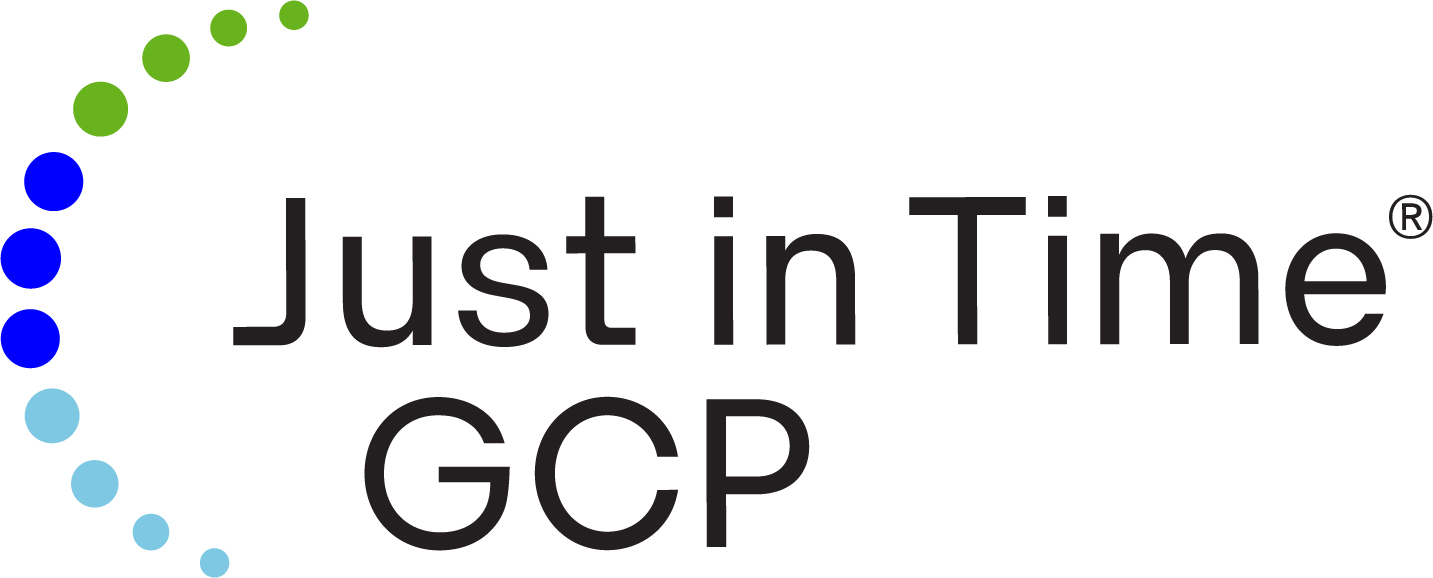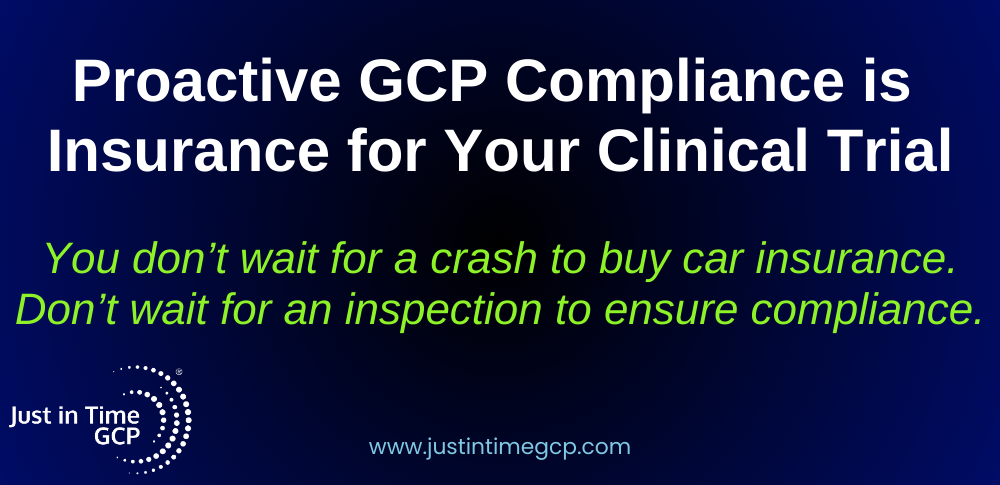Proactive GCP Compliance: Insurance for Your Clinical Trial
In the world of clinical trials, compliance with Good Clinical Practice (GCP) is often seen as just another regulatory requirement—something to check off a list to satisfy inspectors. But in reality, proactive GCP compliance is much more than that; it’s like an insurance policy for both your clinical trial and your asset. You can either invest in it upfront—establishing the right processes, systems, and documentation—or take shortcuts and risk facing costly, potentially devastating consequences down the road.
Read more on Four Reasons Why GCP Compliance is Important
Paying a Little Now vs. Paying a Lot Later
When it comes to insurance, most people accept that paying regular premiums is far better than dealing with an uncovered disaster. The same applies to GCP compliance. Investing in proactive measures—such as rigorous training, real-time monitoring, quality audits, and well-documented processes—may feel like an additional expense, but it pays off in the long run. These efforts help identify and address minor deviations before they spiral into major protocol violations or regulatory findings.
Conversely, neglecting compliance in the early stages of a trial is like driving without insurance. Everything may seem fine—until an inspection reveals inadequate documentation, improper informed consent processes, or deviations that compromise data integrity. At that point, organizations face protocol amendments, trial delays, costly remediation efforts, and, in extreme cases, regulatory penalties or trial shutdowns.
Read More about the Impact of Generative AI on GCP Inspection Readiness
Risk Mitigation: The Core of Compliance Insurance
Much like an insurance policy is designed to mitigate financial risk, proactive GCP compliance helps mitigate trial-related risks. Consider these key elements of a strong “compliance insurance” strategy:
- Effective Processes that Align with Regulatory Requirements: Building out processes that ensure your team is conducting the trial in alignment with regulatory requirements, offers protection against non-compliance.
- Robust Training Programs: Ensuring all clinical trial staff understand and follow GCP principles prevents costly retraining or corrective actions later.
- Real-time Quality Oversight: Regular monitoring and risk-based quality management (RBQM) approaches detect and address potential issues before they escalate.
- Strong Documentation Practices: A well-maintained trial master file (TMF) acts as the “policy document” that proves compliance when regulators come knocking.
- Proactive Audits and Inspections: Conducting system audits and reviews before external inspections creates an opportunity to catch noncompliance risks early.
Lessons from Costly Noncompliance
History is filled with examples of trials that suffered due to inadequate GCP compliance. In many cases, lack of proper oversight led to data integrity issues, regulatory holds, and even trial terminations. Companies that failed to “pay a little” in upfront compliance often ended up facing multimillion-dollar losses in corrective actions, reputational damage, and litigation.
The Takeaway: A Worthwhile Investment
In clinical research, GCP compliance isn’t just a requirement—it’s an essential safeguard. Organizations that treat it like an insurance policy, consistently investing in preventive measures, are far better positioned to navigate inspections, protect trial integrity, and avoid costly surprises. Just as no one wants to be caught without insurance when disaster strikes, no clinical trial should be left vulnerable due to lax compliance efforts.
Proactive compliance today is the best protection against major setbacks tomorrow. The choice is simple: pay a little now, or pay a lot later.
Read More on ICH E6(R3) and How to Align Business Operations
Just in Time GCP can help you stay ahead of risk before it becomes a problem. Read more about our services here.
- eTMF Story of the Study: Uncover gaps and ensure your TMF tells a complete, compliant story.
- GCP Gap Assessment: Identify early compliance risks and strengthen your operating environment.
- eClinical System Optimization: Align your systems with regulatory expectations and future needs.



